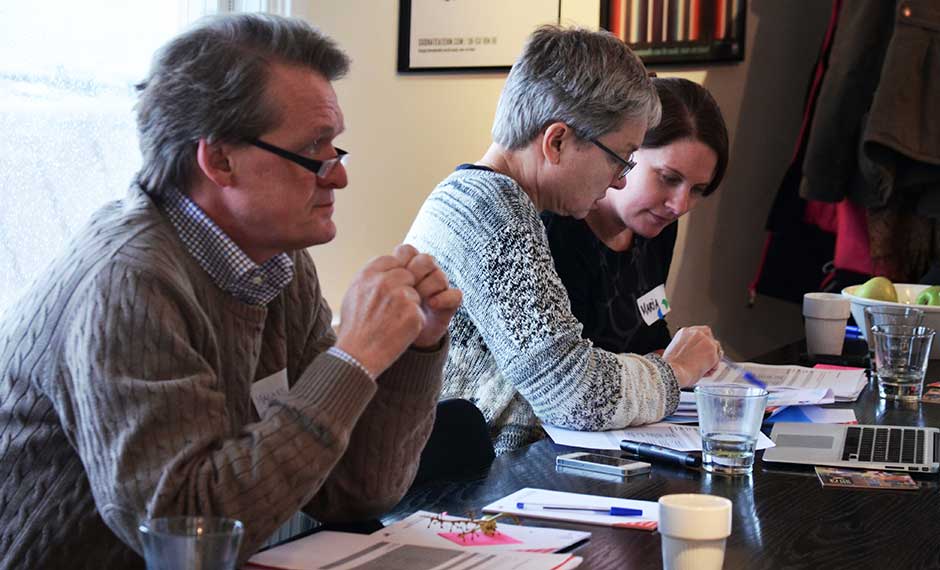The European project “RRI Tools” has been set up in order to empower all actors to contribute their share to a Responsible Research and Innovation (RRI), built with and for society. Significant opportunities for businesses and scientists could come from Responsible Research and Innovation, according to the findings of a series of 27 workshops organised by “RRI Tools” in 24 countries, gathering a total of 411 participants from 5 stakeholder groups – researchers, business and industry, policy-makers, civil society organisations, and education community.
The workshops set out to discuss stakeholder understandings of RRI, what they saw as the opportunities and obstacles in moving towards this approach and their ideas of practical measures to help implement RRI. The results of this pan European consultation have been presented at the RRI Tools Hubs meeting in Lisbon on 23 April 2015.
In Sweden, the workshop was run by VA (Public & Science), coordinator of the Swedish RRI hub, and brought together representatives from all of the five stakeholder groups. Swedish stakeholders were particularly positive about the opportunities that cross-sector collaboration via RRI might bring to Sweden in terms of generating a national comparative advantage. Policymakers identified it as an “opportunity for the whole value chain” and saw Sweden as being well positioned to be at the forefront for developing innovative and sustainable solutions using this method.
Opportunities for all
Across the different countries, participants identified a large number of opportunities that could come from adopting RRI practices, procedures and cultures. They pointed out that RRI provides a chance to bring science and society closer and avoid future controversies. They also noted the opportunity for RRI to improve the culture of science and scientific careers by expanding the role of scientists in society and giving research a problem oriented focus; and to create better innovations, new markets and increased competitiveness and creativity through wider input, problem focus and new networks. Participants highlighted too the role of RRI in getting democratic benefits from more engaged citizens, and improving learning by connecting research and practice.
The main obstacles that participants felt hindered progress towards RRI goals related to attitudes, knowledge, skills and resources − in particular a lack of buy-in and understanding of what RRI means to each stakeholder, resistance to change and the tendency to focus on short term goals and economic benefits in research, innovation and policy. The unpredictability and uncertainty of science was also highlighted as this makes it difficult to control and plan scientific outcomes. Participants stressed the lack of networking opportunities within and between stakeholders, the lack of time, money, people and infrastructure, as well as the lack of expertise and training to implement RRI, and ‘soft’ skills, such as communication, for scientists.
On a more general level, while most stakeholders have a reasonably clear understanding of public participation, they appear to know little about other aspects of RRI. There is also a strong tendency for stakeholders to see the responsibility for RRI resting with stakeholders other than themselves.
Stakeholders’ recommendations
To help encourage greater take-up of the ideas within Responsible Research and Innovation, participants suggested developing a definition of RRI that is clear and common to all stakeholders, while at the same time bringing the concept to life for the different stakeholders; providing opportunities for networking and to build relationships between the various stakeholders and the stakeholders and the public; developing training and guidance on how to ‘do’ RRI. Other recommendations included: rethinking ethos of funding, rewards, and promotion to encourage researchers to consider the consequences of their research; reflecting society’s needs and socially desirable outcomes in research funding; including courses in ethics and communication for science students; and embedding RRI into organisational structures by integrating it into existing strategies, charters and policies.
For more details on the findings, A 4-page summary is available here.
To keep informed:
An RRI Toolkit presenting the first tools to implement RRI will be available in November 2015 on the collaborative platform www.rri-tools.eu. It will be open to contributions from all interested parties, who will be invited to comment on existing tools and add new ones.
To stay up-to-date with the RRI Toolkit, please register to receive the RRI Tools newsletter.
Follow RRI Tools on:
– Facebook: http://www.facebook.com/RRI.Tools.Project
– Twitter: http://twitter.com/RRITools
– LinkedIn: http://www.linkedin.com/groups/RRI-Tools-Fostering-Responsible-Research-8111498

